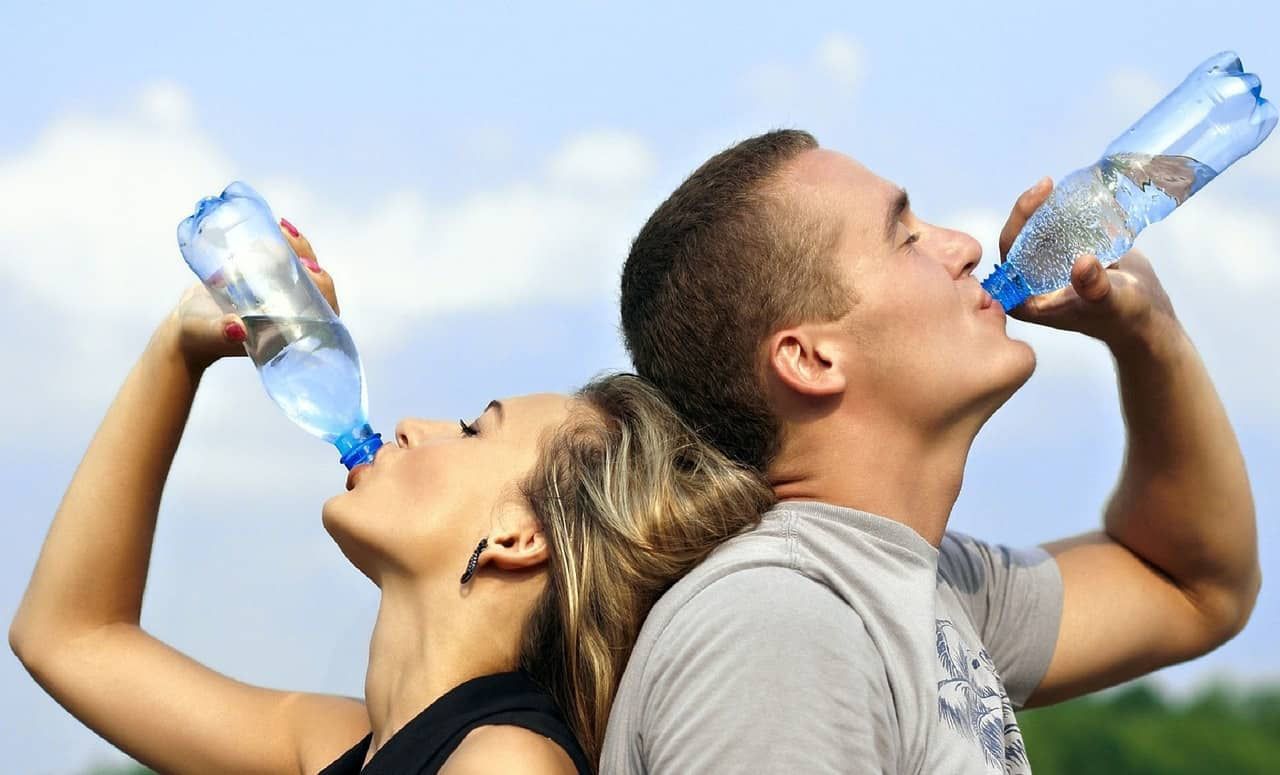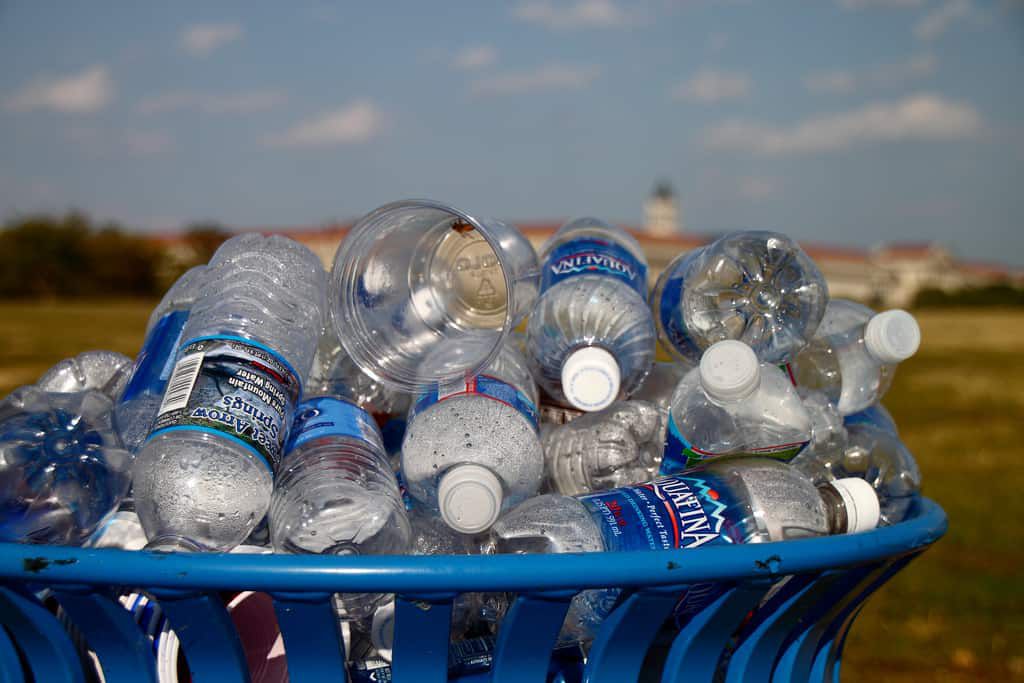
It’s no coincidence that two-thirds of the human body is composed of water, just as two-thirds of Earth is covered with water. In fact, the key to finding life in other parts of the universe is water, because it’s essential for life. The fact that Mars might have water is quite promising for the prospect of humans inhabiting Mars at some point in the future!
Less than 1 percent of Earth’s water is actually potable. The total amount of water on the planet has remained steady from the beginning of life. Earth’s water has been continually recycled, but it hasn’t been plundered and polluted by humans at the rate at which we’ve done so in the last century.
Water is a magical universal solvent that carries dissolved vitamins, minerals and other nutrients, hormones and neurotransmitters through the body. Most biochemical reactions that make life possible take place in water.
Water is a polar molecule and is highly cohesive. Polar means that it’s electrically charged, and the electrical charge is different in different parts of the water molecule.
Cohesive means that the water molecules tend to stick to each other very well. Think about how a steady stream of water makes its way from deep underground to the top of an 800-foot-tall redwood tree. This cohesion is how it can form a smooth and continuous medium in the body for biochemical reactions.
Body fluids connect us: The exchange of saliva and reproductive fluids leads to procreation. The cohesion and attraction of water is essential to life, and it has been throughout our creation. This cohesion manifests itself as the emotional bonding between people, and as such, it underlies the experience of love. In all living things, water forms the cohesive liquid of the cell, whose vital life-supporting functions occur within the cell’s cytoplasmic fluid.
We can survive without air for about three to four minutes; we can survive without water for about three to four days; and yet, we can survive without food for up to 40 days.
Among the many amazing properties of water, it’s the only common substance that naturally occurs in liquid, gas and solid forms.
Your water needs
 Your body needs three to four litres of water a day (about a gallon) to function optimally. A good rule of thumb is that your daily water requirement (in ounces) equals about half your body weight (in pounds). For example, if you weigh two hundred pounds (about 91 kilograms), you should drink one hundred ounces (about three litres) of water every day. This includes water in coffee, tea or any other fluids (except alcoholic drinks).
Your body needs three to four litres of water a day (about a gallon) to function optimally. A good rule of thumb is that your daily water requirement (in ounces) equals about half your body weight (in pounds). For example, if you weigh two hundred pounds (about 91 kilograms), you should drink one hundred ounces (about three litres) of water every day. This includes water in coffee, tea or any other fluids (except alcoholic drinks).Meeting your daily water requirement can help you do all of the following:
Feel satisfied and energetic while helping to prevent cravings for junk food
Prevent constipation and headaches
Maintain proper body temperature
Flush out toxins from the bloodstream, the gut and even the brain
Cleanse the organs of excess sodium hidden in processed foods
Improve skin complexion
Help the digestive system
Boost the immune system
Prevent falls and other injuries
Lubricate and cushion the joints
Protect the spinal cord and other sensitive tissues inside
Maintain our vital cell and DNA structure
Optimize metabolic chemical reactions in the mitochondria that help us maintain our health and vitality
Reduce fat stores
We are in fact dehydrated the moment we wake up, because of water loss from breathing and sweating through the course of the night. The first thing we should do when we wake up in the morning is drink a litre of water to start the process of compensating for this overnight water loss and of cleansing as we start our day.
Instead, we typically start with a cup of coffee, getting even further behind in our water deficit. I have nothing against good-quality coffee; I just think we should hydrate first. Coffee is mostly water, but because of its diuretic effect (meaning it makes us urinate), it could worsen your water deficit if you start drinking coffee in the morning without first compensating for the overnight water deficit by drinking a couple of glasses of water.
Have you ever felt dehydrated? Dehydration affects every part of the body, starting with the functioning of the brain. It affects mental clarity and energy levels, leading to fatigue and lethargy and worsening of response times and concentration.
Dehydration can affect our senses of sight, smell and taste. It can affect skin tone and heart rate. It affects muscle tone and strength, making it much more likely for us to fall and get injured when we're dehydrated. Dehydration increases risk for urinary infections, constipation and bowel obstruction.
A 5 percent decrease in our hydration level can drop our energy levels by as much as 25 to 35 percent. Also, when we're dehydrated, we're at a much higher risk for injuries. Astonishingly, 75 percent of people worldwide are chronically dehydrated, and 37 percent of people mistake thirst for hunger.
Misinterpreting thirst as hunger
When we look back at the several millennia that we’ve inhabited this planet, the discovery that we could transport water in vessels such as clay pots has been rather recent. Prior to this discovery, our ancestors were meeting most of their water needs from food. Real, unprocessed whole food (such as fresh vegetables and fruit) comes pre-packaged with lots of water. For example, a tomato or a cucumber is 90 percent water!
Thus, we haven’t really evolved to clearly know the difference between thirst and hunger, and we can easily mix up the two. This means that staying well hydrated helps us prevent overloading our bodies with food, especially with calorie-dense, nutrient-poor foods.
Drink quality water, not junk water
Get in the habit of drinking the right amount of quality water. This is an inexpensive, quick and simple shortcut to achieving the Turbo Metabolism solution of optimal health, vigor and vitality.
However, not all water is the same. Just as beneficial nutrients are removed from modified or processed “junk foods” (and toxicants are often added), water can be similarly modified and processed to become “junk water,” in which minerals have been removed and sugar, salt and toxicants have been added.
The quality of your water is as important as the quantity. Quality water should be free of environmental toxicants, such as pesticides, nitrates from fertilizers, prescription medications, lead and arsenic, which are more and more commonly seeping into our groundwater.
For the most part, the U.S. municipal water supply is of very good quality. Of course, there can be stark exceptions, such as the lead-contamination crisis in Flint, Michigan, in 2015 (when, to cut costs, the government stopped adding an anti-corrosive agent, and toxic lead from old pipes leached into the drinking water supply).
To check the quality of the water in your area, check for online resources and the Environmental Protection Agency website and safe drinking water hotline.
Does water temperature matter?
In Ayurveda, the recommendation is to have sips of lukewarm (or at least room-temperature) water through the course of a meal, and it’s probably a good idea to drink a sizable glass of room-temperature water before eating a meal and to sip from it during the meal.
Why room temperature? All of your digestive enzymes work at body temperature, so ice water will make those conditions for digestion less than ideal. Ice water numbs our taste buds, which may be why we’re encouraged to drink beer and soda ice-cold: It might be the only way to intentionally put these nutritionally bankrupt substances into our bodies. This doesn’t mean that we should never enjoy ice cream or a nice cold orange, but just know that when you consume cold food or beverages, it might be reducing your digestive power.
Know where your water comes from
 Sales of bottled water are on the rise, thanks to the slick marketing of this $8 billion industry about the perceived superiority and convenience of bottled water. Regardless of what the label on the bottle says, don’t be misled by enticing promises and pictures of mountains.
Sales of bottled water are on the rise, thanks to the slick marketing of this $8 billion industry about the perceived superiority and convenience of bottled water. Regardless of what the label on the bottle says, don’t be misled by enticing promises and pictures of mountains.In the United States, 47 percent of bottled water is tap water that’s been purified, according to data from the Beverage Marketing Association, a trade group.
The reality is that, for the most part, the U.S. public water supply is much more closely regulated than bottled water, and it’s the safest, most convenient and most environmentally friendly option. Of course, this isn’t always the case. In some parts of the world, bottled water might be necessary, and a can of soda may be easier to find and cheaper than clean tap water!
«RELATED READ» HOLISTIC WEIGHT LOSS: Q&A with Eva Wellness about sensible dieting practices»
image 1: Pixabay; image 2: MrTinDC
Read the full article
